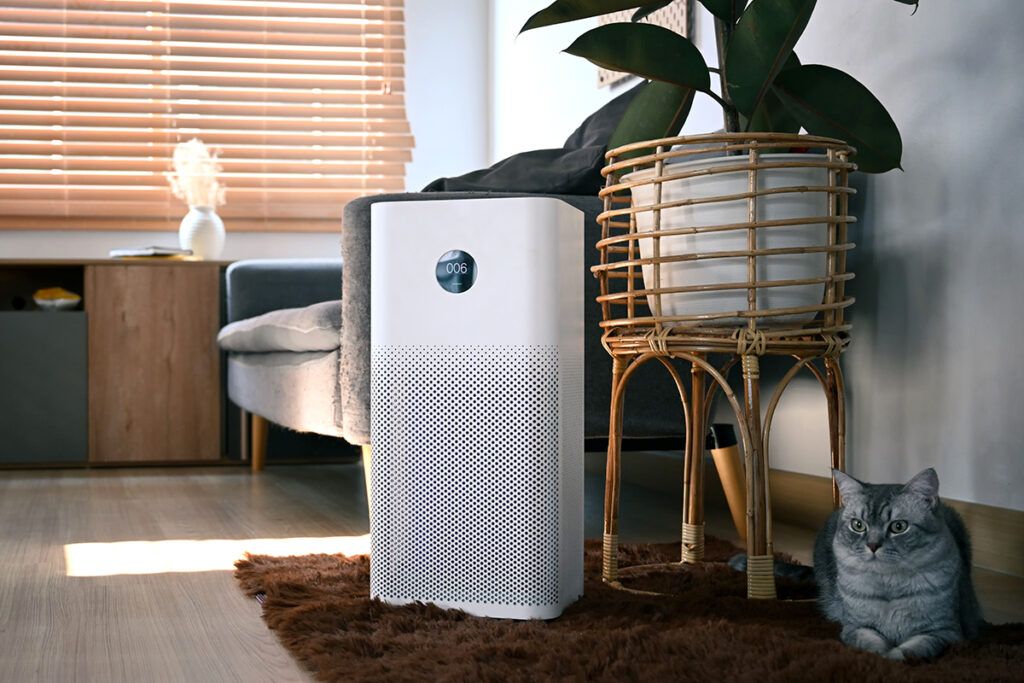People living with asthma may wonder whether an air purifier can help. Though it’s not a cure for the condition, using an air purifier for asthma can be a helpful way to improve quality of life when used alongside other treatments.
Knowing how air purifiers can help with asthma and what other treatments are available can help you manage your condition in a way that works for you.
What is asthma?

Asthma is a long-term (chronic) condition in which the airways of the lungs are chronically inflamed. Inflammation narrows the airways, which can make breathing difficult.
In addition to shortness of breath, symptoms can include wheezing, coughing, and pain in the chest.
According to the Centers for Disease Control and Prevention (CDC), about 25 million people in the United States have asthma — 1 in every 13 people. The cause of asthma is not always known and can vary from person to person. Genetics and environmental factors can play a role.
“Atopy” is a term that refers to a genetic tendency to develop an allergic disease like asthma. Some common allergic triggers are pet dander, dust, or certain foods. Research has linked exposure to these allergens at an early age to asthma developing in children.
Although it’s more common, not all asthma is atopic. Exposure to secondhand smoke, air pollution, and viral lung infections can also cause asthma.
How can an air purifier help?
An air purifier traps common air pollutants from indoor air and releases clean air. This includes many of the same allergens and irritants that can trigger asthma, such as pet dander, smoke, pollen, dust, and some mold spores.
When using an air purifier for asthma, it’s important to consider the quality of the device. Medical studies have shown that good quality air purifiers that trap tiny particles, such as a high efficiency particulate air (HEPA) purifier, improve air quality and make breathing easier for people with asthma.
A study of 38 people with allergic asthma found that those using HEPA air filters reduced allergen levels in their houses by up to 71%, resulting in improved air quality. For a person with asthma, air quality can affect their quality of life.
People with asthma should be careful when buying certain types of air purifiers. Any device that emits ozone, including electric air filters, can make asthma symptoms worse. Ozone can irritate the lungs, and most ozone-emitting air purifiers don’t filter allergens from the air.
In addition to the type of air filter, how you use it in your home can also make a difference. A large room may need multiple air filters to filter and sanitize the air properly.
People living with asthma due to a lung infection may not see as much benefit as those with environmental and allergic asthma. However, cleaner air is always beneficial for people with any type of asthma.
Other treatments for asthma
You can take additional steps to lower common allergens and pollutants in your home. These may include the following:
- Regularly clean the home (and wear a mask while cleaning) to remove mold and dust.
- Change bedding at least once weekly and use dustproof covers on mattresses and pillows.
- Consider removing carpets, which can trap indoor allergens, and replace them with hard flooring.
- Use air conditioning to prevent moist and hot environments that promote the growth of mold spores and dust mites.
One 2018 review suggests that taking multiple steps to lower allergen exposure (e.g., using a HEPA filter and removing carpets) has a better effect on asthma than just one intervention alone. However, more research is needed.
Your doctor can talk with you about different medications that can help manage your symptoms. Quick-relief medications may help with an asthma attack. For example, inhaled short-acting beta-2 agonists, which include albuterol and levalbuterol, can open the airways during an attack.
A doctor may also prescribe oral corticosteroids, such as hydrocortisone (Cortef) or prednisolone (Millipred), to reduce swelling in the airways.
Taking long-term medications daily can help prevent asthma attacks or control the symptoms. These include corticosteroids to reduce inflammation. They may also include inhaled mast cell stabilizers (such as cromolyn sodium and nedocromil sodium) to prevent swelling when you’re around common triggers.
If you need help covering the cost of medications, the free Optum Perks Discount Card could help you save up to 80% on prescription drugs. Follow the links on drug names for savings on that medication, or search for a specific drug here.
